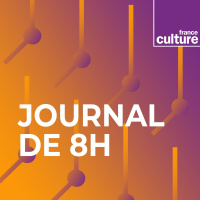Synopsis
Interviews with Economists about their New Books
Episodes
-
Katie Hindmarch-Watson, "Serving a Wired World: London's Telecommunications Workers and the Making of an Information Capital" (U California Press, 2020)
15/03/2021 Duration: 39minHow did telecommunications shape Victorian London? In Serving a Wired World London's Telecommunications Workers and the Making of an Information Capital Katie Hindmarch-Watson, an Assistant Professor in history at Johns Hopkins University, tells the history of London through the lenses of technology, gender, class, and sexuality. The book offers a rethinking of liberal subjectivity and the city at the end of the nineteenth century, showing how the Victorian obsessions with privacy and respectability intersected with technology to create the urban and social fabric of London. The book also draws on queer history, demonstrating the importance of sex scandals in the Victorian and Edwardian eras for understanding urban, technology, and gender histories. A fascinating read, the book will be an essential text across the humanities and social sciences. Learn more about your ad choices. Visit megaphone.fm/adchoices Support our show by becoming a premium member! https://newbooksnetwork.supportingcast.fm/economics
-
Dying from Despair in the USA: A Discussion with Anne Case
15/03/2021 Duration: 57minLife expectancy in the United States has recently fallen for three years in a row—a reversal not seen since 1918 or in any other wealthy nation in modern times. In the past two decades, deaths of despair from suicide, drug overdose, and alcoholism have risen dramatically, and now claim hundreds of thousands of American lives each year—and they’re still rising. Anne Case and Angus Deaton, known for first sounding the alarm about deaths of despair, explain the overwhelming surge in these deaths and shed light on the social and economic forces that are making life harder for the working class. They demonstrate why, for those who used to prosper in America, capitalism is no longer delivering. Deaths of Despair and the Future of Capitalism (Princeton University Press, 2020) paints a troubling portrait of the American dream in decline. For the white working class, today’s America has become a land of broken families and few prospects. As the college educated become healthier and wealthier, adults without a degree a
-
Edward A. David, "A Christian Approach to Corporate Religious Theory" (Palgrave MacMillan, 2020)
12/03/2021 Duration: 50minHow does individual religious liberty apply to religiously affiliated groups? Edward A. David investigates the polarized ways legal theorists seek to understand group ontology in A Christian Approach to Corporate Religious Theory (Palgrave MacMillan, 2020). David surveys the merits and pitfalls of prevailing approaches from within and without the Christian tradition. Many legal theorists are deeply skeptical of corporate group ontology, especially as religious groups have sometimes tended to conflate churches proper with religiously affiliated organizations in ways that can set uncomfortable precedents. This book offers a novel way forward that suggests a retrieval of Saint Thomas Aquinas's theory of coordinated group activity to provide a more salient moral framework to evaluate the liberties and limits of religious groups. You can follow Edward David's work on his website or on Twitter (@edwardinoxford) Ryan David Shelton (@ryoldfashioned) is a social historian of British and American Protestantism and a
-
M. A. Heller and J. Salzman, "Mine!: How the Hidden Rules of Ownership Control Our Lives" (Doubleday, 2021)
10/03/2021 Duration: 34minToday I spoke with Michael Heller about the book he has just published with James Salzman. The title is Mine!: How the Hidden Rules of Ownership Control Our Lives (Doubleday, 2021) Michael Heller at Columbia University is Professor of Real Estate Law. Before joining Columbia Law in 2002, you taught at the University of Michigan, NYU, UCLA, and Yale Law Schools. Prior to entering academia, you worked at the World Bank on post-socialist legal transition and you even served as a law clerk at the 9th Circuit Court of Appeals. James Salzman is the Donald Bren Distinguished Professor of Environmental Law with joint appointments at the UCLA and UC Santa Barbara. He was formerly at Duke University. His book, Drinking Water: A History, was reviewed and praised in the New York Times and Washington Post. Ownership rules have been a key topic in economics and law since the establishment of the disciplines, with economics being much more junior than law. Recently Law and economics or economic analysis of law have become a
-
Gabriel Winant, "The Next Shift: The Fall of Industry and the Rise of Health Care in Rust Belt America" (Harvard UP, 2021)
08/03/2021 Duration: 01h26minIn his book The Next Shift: The Fall of Industry and the Rise of Healthcare in Rust Belt America (Harvard University Press, 2021), Gabriel Winant explains how the social reproductive labor sustaining the US's industrial economy was institutionalized in response to steelworker layoffs, aging, and sickness beginning in the 1960s. The result was a recomposition of the American working class, from a predominantly white male industrial one, to a meagerly paid and socially devalued pool of care workers comprised mostly of women, and especially women of color. Neoliberalism's insecure labor regime is not a reversion to an earlier period of inequality but a consequence of midcentury welfare policy, the partial security it offered and the race and gender hierarchies it remade. Patrick Reilly studies history at Vanderbilt University Learn more about your ad choices. Visit megaphone.fm/adchoices Support our show by becoming a premium member! https://newbooksnetwork.supportingcast.fm/economics
-
JeVon McCormick: Entrepreneur, Author and Speaker
08/03/2021 Duration: 01h19minJeVon McCormick was born the son of a black pimp father and a white orphan mother. Hear how, as a nine year old, he critiqued the way his father managed prostitutes, to his rejection of concepts such as “hope” and “luck”. When he was in juvenile detention neither of his parents knew where he was. His journey from toughest of upbringings to fame and fortune is unforgettable and inspiring. Kimon and Richard never spoke to an entrepreneur with a history like his. We are sure you will find it as compelling as we did. The lessons that he shares from his journey about saving, adaptation, learning by doing, the power of asking questions, accountability, and responsibility can benefit entrepreneurs and leaders the world over. McCormick’s book I Got There: How a Mixed-Race Kid Overcame Racism, Poverty, and Abuse to Achieve the American Dream tells his story. About our guest JeVon McCormick is the son of a black pimp and a white mother, and was raised in the most dreadful conditions, three times jailed before he was a
-
Paul Vallely, "Philanthropy: From Aristotle to Zuckerberg" (Bloomsbury Continuum, 2020)
08/03/2021 Duration: 55minIn this magnum opus, Paul Vallely guides the reader on a journey through the history and meaning of giving in religion and society. Vivid with anecdote and scholarly insight, this magisterial survey – from the ancient Greeks to today's high-tech geeks – provides an original take on the history of philanthropy. It shows how giving has, variously, been a matter of honor, altruism, religious injunction, political control, moral activism, enlightened self-interest, public good, personal fulfillment and plutocratic manipulation. Its narrative moves from the Greek man of honor and Roman patron, via the Jewish prophet and Christian scholastic – through Puritan proto-capitalist, Enlightenment activist and Victorian moralist – to the robber-baron philanthropist, the welfare socialist, the celebrity activist and today's wealthy mega-giver. In the process it discovers that philanthropy lost an essential element as it entered the modern era. The book then embarks on a journey to determine where today's philanthropists co
-
Mark R. Rank, "Poorly Understood: What America Gets Wrong about Poverty" (Oxford UP, 2021)
04/03/2021 Duration: 41minFew topics have as many myths, stereotypes, and misperceptions surrounding them as that of poverty in America. The poor have been badly misunderstood since the beginnings of the country, with the rhetoric only ratcheting up in recent times. Our current era of fake news, alternative facts, and media partisanship has led to a breeding ground for all types of myths and misinformation to gain traction and legitimacy. Poorly Understood: What America Gets Wrong about Poverty (Oxford UP, 2021) is the first book to systematically address and confront many of the most widespread myths pertaining to poverty. Mark Robert Rank, Lawrence M. Eppard, and Heather E. Bullock powerfully demonstrate that the realities of poverty are much different than the myths; indeed in many ways they are more disturbing. The idealized image of American society is one of abundant opportunities, with hard work being rewarded by economic prosperity. But what if this picture is wrong? What if poverty is an experience that touches the majority o
-
Tom Philpott, "Perilous Bounty: The Looming Collapse of American Farming and How We Can Prevent It" (Bloomsbury, 2020)
04/03/2021 Duration: 59minPerilous Bounty: The Looming Collapse of American Farming and How We Can Prevent It (Bloomsbury Publishing, 2020) is an unsettling journey into the disaster-bound American food system, and an exploration of possible solutions, from leading food politics commentator and former farmer Tom Philpott. More than a decade after Michael Pollan's game-changing The Omnivore's Dilemma transformed the conversation about what we eat, a combination of global diet trends and corporate interests have put American agriculture into a state of "quiet emergency," from dangerous drought in California--which grows more than 50 percent of the fruits and vegetables we eat--to catastrophic topsoil loss in the "breadbasket" heartland of the United States. Whether or not we take heed, these urgent crises of industrial agriculture will define our future. In Perilous Bounty, veteran journalist and former farmer Tom Philpott explores and exposes the small handful of seed and pesticide corporations, investment funds, and magnates who benef
-
Roland T. Rust and Ming-Hui Huang, "The Feeling Economy: How Artificial Intelligence Is Creating the Era of Empathy" (Palgrave MacMillan, 2021)
04/03/2021 Duration: 35minToday I talked to Ming-Hui Huang about her book (coauthored with Roland T. Rust), The Feeling Economy: How Artificial Intelligence Is Creating the Era of Empathy (Palgrave MacMillan, 2021) This episode covers the movement of the economy from brawn to brains to hearts. Put another way, the focus here is on the movement from the Physical Economy (farming, factories, etc.) to the Thinking Economy to now the dawning of the Feeling Economy. In the near-term future, artificial intelligence (AI) will handle the thinking tasks and humans on the job will focus on adding value through empathy and their interpersonal skills. The episode explores everything from workers re-skilling, cross-skilling and up-skilling to handle this change, to the impact of this change to being feeling-centric on our politics, educational practices, and the expectations of consumers. Of special note is that the new economic era may privilege female “soft” skills over the “hard” skills men are known by and often more comfortable with. Ming-Hui
-
Alan Klima, "Ethnography #9" (Duke UP, 2019)
03/03/2021 Duration: 01h04minAlan Klima’s Ethnography #9 (Duke University Press, 2019) was co-written by a ghost. And that’s just the start of what’s going on in this eerie, singular book. It’s a discussion of finance in post-crash Thailand, a study of non-material histories, and an examination of the limits of anthropological writing. It’s also at once a complex and textured challenge to ethnographic realism and a compelling story about the life and death (and etc) of a young girl. The book was a co-winner of 2020’s Gregory Bateson Prize and is available open access here. In today’s conversation, I do my best to ask Professor Klima about the status of ghosts in anthropology, tensions between narrative and theory, and how anthropologists can get weird with their writing. Alan Klima is Professor of Anthropology at UC Davis, his previous works include the book The Funeral Casino (Princeton University Press 2002) and the film Ghosts and Numbers (2010). Lachlan Summers is an eccentric billionaire and PhD candidate in cultural anthropology a
-
Introduction to the Entrepreneurship and Leadership Podcast
01/03/2021 Duration: 38minIn this episode Kimon and Richard explain why they are launching the NBN Entrepreneurship and Leadership podcast, the topics they are going to delve into with their guests and what aspects of their guests’ entrepreneurial journeys they are most interested in. What has been the role of background and upbringing, social and family pressures, education (or lack of it), and their attitudes to competition and luck. Despite their common business history Kimon and Richard highlight differences in their experiences and how they believe their varying perspectives will lead to a solid exploration of what can be learned from the guests. If you want to get a sense of what this channel is all about, and why it should be interesting to listeners who are into entrepreneurship and leadership, this is a great place to start. The NBN Entrepreneurship and Leadership podcast aims to educate and entertain, sharing insights based on the personal story of our carefully selected guests aiming for the atmosphere of an informal conver
-
A. Gandhi et al., "Rethinking Markets in Modern India: Embedded Exchange and Contested Jurisdiction" (Cambridge UP, 2020)
26/02/2021 Duration: 01h02minModern markets and exchange, compared with other social and political spheres, are seen through technical abstractions. This intellectual compartmentalization has political consequences: if capitalism operates through arcane, objective, and rational mechanics, the very real interests and very real consequences of exchange are disguised and simplified. In their empirically dense and theoretically bold edited volume, Ajay Gandhi, Barbara Harriss-White, Douglas Haynes, and Sebastian Schwecke gather historians and anthropologists to reflect on the dynamic, adaptive, and ambiguous realities of markets and exchange in India. Rethinking Markets in Modern India: Embedded Exchange and Contested Jurisdiction (Cambridge University Press, 2020) provides a rich array of vivid case studies – from colonial property and advertising milieus to today’s bazaar and criminal economies – to examine the friction and interdependence between commerce, society, and state. Beyond providing a vantage point for rethinking global capitali
-
L. Vinsel and A. L. Russell, "The Innovation Delusion: How Our Obsession with the New Has Disrupted the Work That Matters Most" (Currency, 2020)
24/02/2021 Duration: 53minIt’s hard to avoid innovation these days. Nearly every product gets marketed as being disruptive, whether it’s genuinely a new invention or just a new toothbrush. But in this manifesto on the state of American work, historians of technology Lee Vinsel and Andrew L. Russell argue that our way of thinking about and pursuing innovation has made us poorer, less safe, and—ironically—less innovative. Drawing on years of original research and reporting, The Innovation Delusion: How Our Obsession with the New Has Disrupted the Work That Matters Most (Currency, 2020) shows how the ideology of change for its own sake has proved a disaster. Corporations have spent millions hiring chief innovation officers while their core businesses tank. Computer science programs have drilled their students on programming and design, even though the overwhelming majority of jobs are in IT and maintenance. In countless cities, suburban sprawl has left local governments with loads of deferred repairs that they can’t afford to fix. For an
-
S. Carlsson and J. Leijonhufvud, "The Spotify Play: How CEO and Founder Daniel Ek Beat Apple, Google, and Amazon in the Race for Audio Dominance" (Diversion Books, 2021)
18/02/2021 Duration: 49minFifteen years ago in Stockholm, Daniel Ek and Martin Lorentzon had a big idea. The music industry was playing a desperate game of whack-a-mole with piracy via file sharing but this was proving as hopeless as the War on Drugs. Why not, they thought, use the new torrenting technologies to bring piracy in from the cold and make themselves rich in the process? In 2006, they founded Spotify with a handful of engineers, no licences and no revenue. Today, Spotify is the world's most popular audio streaming subscription service with 345 million users and a market capitalization of $60 billion. How did the shy computer nerd and hyperactive investor tame hostile music labels and withstand competition from US tech giants more than ten times their size? Still struggling to achieve sustained profitability in cut-throat market segments, will Ek’s latest foray into podcasting eventually free Spotify of its dependency on the music labels or suffer the same fate as Spotify TV? The Spotify Play: How CEO and Founder Daniel Ek B
-
Kenneth V. Faunce, "Heavy Traffic: The Global Drug Trade in Historical Perspective" (Oxford UP, 2020)
17/02/2021 Duration: 29minMuch of the world's politics revolve around questions about the development of the international market for drugs; the roles merchants, government officials, and drug manufacturers played in shaping this market over time and space; and the process of globalization. There are no easy answers to these questions, but the decisions that all of us make about them will have tremendous consequences for individuals and for the planet in the future. Kenneth V. Faunce's new book Heavy Traffic: The Global Drug Trade in Historical Perspective (Oxford UP, 2020) helps students to understand globalization not as an inevitable or natural process, but instead as one that is created by and responds to a variety of human motivations. Examining the international trade in coffee, alcohol, opium, heroin, and cocaine, which have had a significant impact on economies and societies in countries around the world, it offers insight into globalization as a historical process, thereby helping to make sense of today's interconnected world
-
Nicholas Jepson, "In China's Wake: How the Commodity Boom Transformed Development Strategies in the Global South" (Columbia UP, 2019)
17/02/2021 Duration: 01h04minFrom 2002 to 2013, China’s rapid economic growth caused a boom in the prices of commodities—particularly of metals, fuel, and soybeans. According to political economist Dr. Nick Jepson, the commodity boom offered resource exporters in the Global South the financial resources and thus the opportunity to break away from international financial institutions like the International Monetary Fund and set their own policy agendas. But not all resource-exporting countries that benefited from the commodity boom took this path away from neoliberalism. In his new book In China’s Wake: How the Commodity Boom Transformed Development Strategies in the Global South (Columbia University Press 2020), Jepson uses fieldwork, interviews, and qualitative comparative analysis (QCA) to identify and describe five typologies of resource exporters during the boom and the factors that contributed to differing development strategies and trajectories. China’s rise has had profound consequences on the processes of global capitalism, and
-
M. Haentjens and P. De Gioia-Carabellese, "European Banking and Financial Law" (Routledge, 2020)
12/02/2021 Duration: 47minEven without the loss of the City of London from its jurisdiction, the EU has gone through a decade-long revolution in financial supervision and regulation since Lehman Brothers’ bankruptcy in 2008. The directives and regulations introduced in the wake of the crisis took years to negotiate, implement and stress-test against political reality in the last five years. The second wave of the crisis, which exposed the “doom loop” between fiscally weak states and their pet banks, spawned the European Banking Union but left some crucial remedial work undone. In this update of their 2015 edition of European Banking and Financial Law (Routledge, 2020), Matthias Haentjens and Pierre de Gioia Carabellese provide a comprehensive description and analysis of this growing body of new law, its origins, and policy implications. Matthias Haentjens is professor of law, director of the Hazelhoff Centre for Financial Law at the University of Leiden, and a deputy judge in the district court of Amsterdam. *His book recommendations
-
M. Condon and A. Wichowsky, "The Economic Other: Inequality in the American Political Imagination" (U Chicago Press, 2020)
11/02/2021 Duration: 55minMeghan Condon and Amber Wichowsky have written an incredibly timely and fascinating study of our understanding of income inequality in the United States, and how this understanding contributes to the policies that are pursued, or, to their point, may not be pursued by elected officials to solve some of these entrenched economic problems. The Economic Other centers on understanding how we, individually, see ourselves in cross-class comparisons and how this comparison—either looking “upwards” towards those who are wealthier than we are, or “downwards” towards those who are less economically affluent than we are—shapes our understanding of economic inequality, shapes our sense of political efficacy, and shapes our demands (or lack of demands) for policies to rectify this economic gulf. Condon and Wichowsky used a complex mixed method approach to the research, including conducting experiments and surveys for their research, asking respondents to consider themselves in these various economic comparisons, while als
-
Christy Thornton, "Revolution in Development: Mexico and the Governance of the Global Economy" (U California Press, 2021)
11/02/2021 Duration: 01h01minRevolution in Development: Mexico and the Governance of the Global Economy (University of California Press, 2021) uncovers the surprising influence of post-revolutionary Mexico on the twentieth century's most important international economic institutions. Drawing on extensive archival research in Mexico, the United States, and Great Britain, Christy Thornton meticulously traces how Mexican officials repeatedly rallied Third World leaders to campaign for representation in global organizations and redistribution through multilateral institutions. By decentering the United States and Europe in the history of global economic governance, Revolution in Development shows how Mexican economists, diplomats, and politicians fought for more than five decades to reform the rules and institutions of the global capitalist economy. In so doing, the book demonstrates, Mexican officials shaped not only their own domestic economic prospects, they shaped the contours of the project of international development itself. Rachel














